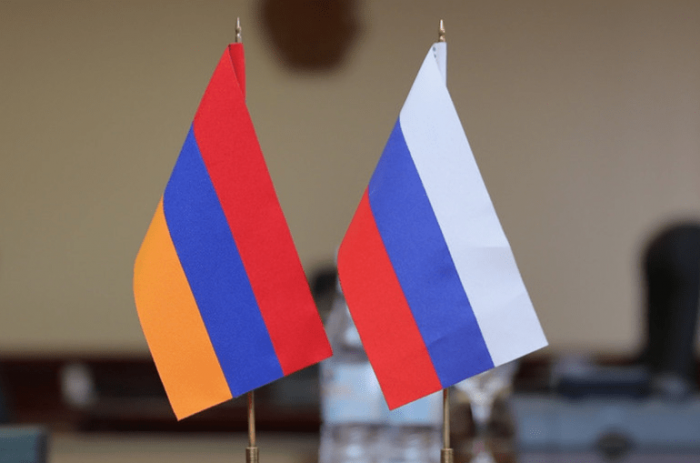On June 26, Armenia’s Security Council Secretary accused Russia of ‘taking Karabakh’ from Armenia and ‘returning it’ to Azerbaijan, adding that Armenia’s military cooperation with Russia, on whom Armenia was ‘completely dependent’, had dropped from ‘96% to less than 10%’. According to Grigoryan, this shift was ‘Russia’s decision and choice’. Following this, parliament speaker Alen Simonian announced a referendum on Armenia’s membership in the EU “in the near future”, claiming that “Our society has made a decision to be part of the European Union.”
Armenia’s Prime Minister Nikol Pashinyan’s government is notorious for its populist and reckless policies, both domestically and internationally. For example, Pashinyan once promised to boost Armenia’s population to 5 million by 2050, despite a UN report projecting a decline to 2,039,000 by 2100. Unrealistic promises, such as hosting the FIFA World Cup, increasing GDP fifteenfold, developing multiple $10 billion technology companies, and achieving top ranks in military and intelligence capabilities, have characterized his tenure.
Recent developments in Armenia’s foreign policy show that Pashinyan continues to use populism to maintain power. This kind of populist posturing has had negative impacts not only on Armenia but also on its neighbors, creating security risks for the region and thus complicating the peace process between Armenia and Azerbaijan.
This article focuses on the baseless claim that Russia orchestrated the return of Karabakh to Azerbaijan. This narrative is fundamentally flawed for two main reasons. Above all, it was the Azerbaijan Armed Forces that liberated the occupied territories in 2020 and 2023. In 2020, during the 44-day war, also known as the Second Karabakh War, Azerbaijan achieved a decisive military victory, ending Armenia’s 30-year occupation and forcing it to sign an act of capitulation. This victory was achieved despite significant sacrifices, including many martyrs. The Armenian leadership admitted that over 10,000 soldiers deserted during the war, highlighting Armenia’s military inadequacies and lack of motivation among its troops.
Secondly, rather than acknowledging its failures, Pashinyan’s government seeks to deflect blame onto Russia. This deflection overlooks the long-standing robust military alliance Armenia has maintained with Russia, serving as Moscow’s primary ally in the South Caucasus. In return, Armenia has received military supplies at discounted prices or free of charge. This partnership has significantly shaped Armenia’s military strategy and supported its occupation of Azerbaijani territories.
In the early 1990s, Armenia occupied the Karabakh region and surrounding territories of Azerbaijan with substantial military assistance from Russia. According to the Stockholm International Peace Research Institute (SIPRI), Russia accounted for a staggering 94% of Armenia’s arms imports between 2011 and 2020. This included sophisticated weaponry like Iskander missiles which were actively used in Armenia’s military operations against Azerbaijan.
The alliance between Armenia and Russia extended beyond mere arms sales. Armenia, as Russia’s ally within the Collective Security Treaty Organization (CSTO) and the Eurasian Economic Union (EAEU), played a critical role in strengthening of Russia’s influence in the South Caucasus. It encompassed joint military exercises, strategic agreements, and even military bases within Armenian territory. In 2021, Armenia expanded the physical presence of the 102nd Russian military base, underscoring the deep-rooted military cooperation between the two nations.
Armenia under Nikol Pashinyan stood with Russia also in Syria, sending a so-called humanitarian mission to this country following the meeting between the Armenian Prime Minister and Russian President Vladimir Putin in September 2018. Although Pashinyan claimed that the mission would not have a military component, eventually Armenia’s contingent included defense ministry personnel.
This close partnership was observed also before and after the 2020 Karabakh war. Contrary to the claims that Russia abandoned Armenia before the Second Karabakh War in 2020, the facts suggest otherwise. After the intense military clashes between Armenia and Azerbaijan subsided in July 2020, reports began to surface about Russia’s launched intensive military supplies to Armenia. In the weeks leading up to the outbreak of the Second Karabakh War on September 27, 2020, there was a significant increase in flights along the route from Rostov to Yerevan, transporting hundreds of tons of military cargo using IL-76 military transport planes. Azerbaijan’s President Ilham Aliyev raised concerns about this intensified military assistance during a phone call with President Vladimir Putin. In response to these concerns, Russia’s Defense Minister Sergei Shoigu, during a visit to Baku on August 25, 2020, unconvincingly said that the shipments to Armenia contained construction materials for Russia’s military base in Gyumri.
The allied relations between Pashinyan’s Armenia and Russia reflected also in the country’s support to Russia on all critical issues at the international platforms including at the UN General Assembly votes on the Russian aggression against Ukraine. For instance, in December 2019, Armenia joined 19 states at the UN General Assembly and voted against a resolution which stated that “Russian military presence in Crimea violates national sovereignty, political independence and territorial integrity of Ukraine and undermines the security and stability of neighboring countries and the European region”. Similar diplomatic support was shown to Russia by the Armenian governments on many other occasions before and after this resolution.
In conclusion, Armenia’s attempt to scapegoat Russia for its foreign policy failures is a diversionary tactic that overlooks the country’s own strategic missteps, military failures and unrealistic policy goals. The narrative that Russia orchestrated the return of Karabakh to Azerbaijan ignores the decisive military actions taken by Azerbaijan and the historical context of Armenia’s reliance on Russian military support. This narrative is also instrumentalized to justify Armenia’s policies to move closer to the West and legitimize the militarization of the country through the Western supplies. This strategy does not promise any good to Armenia or larger peace and security in the region. Ultimately, Armenia’s future stability and success will depend on a more pragmatic and less populist approach to its foreign policy. Acknowledging past mistakes, fostering genuine dialogue with neighboring countries, and setting achievable goals are essential steps towards ensuring long-term regional peace in the region.
AzVision.az
More about: Armenia NikolPashinyan Russia
















































